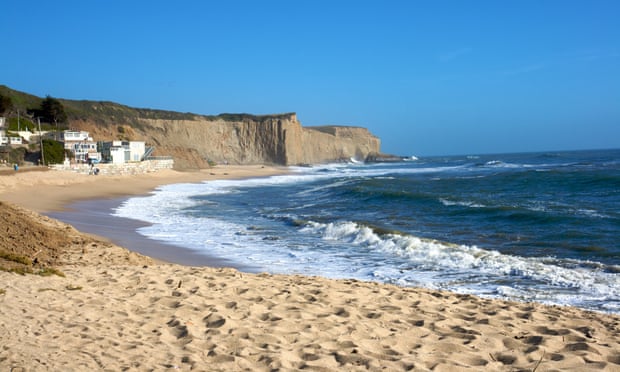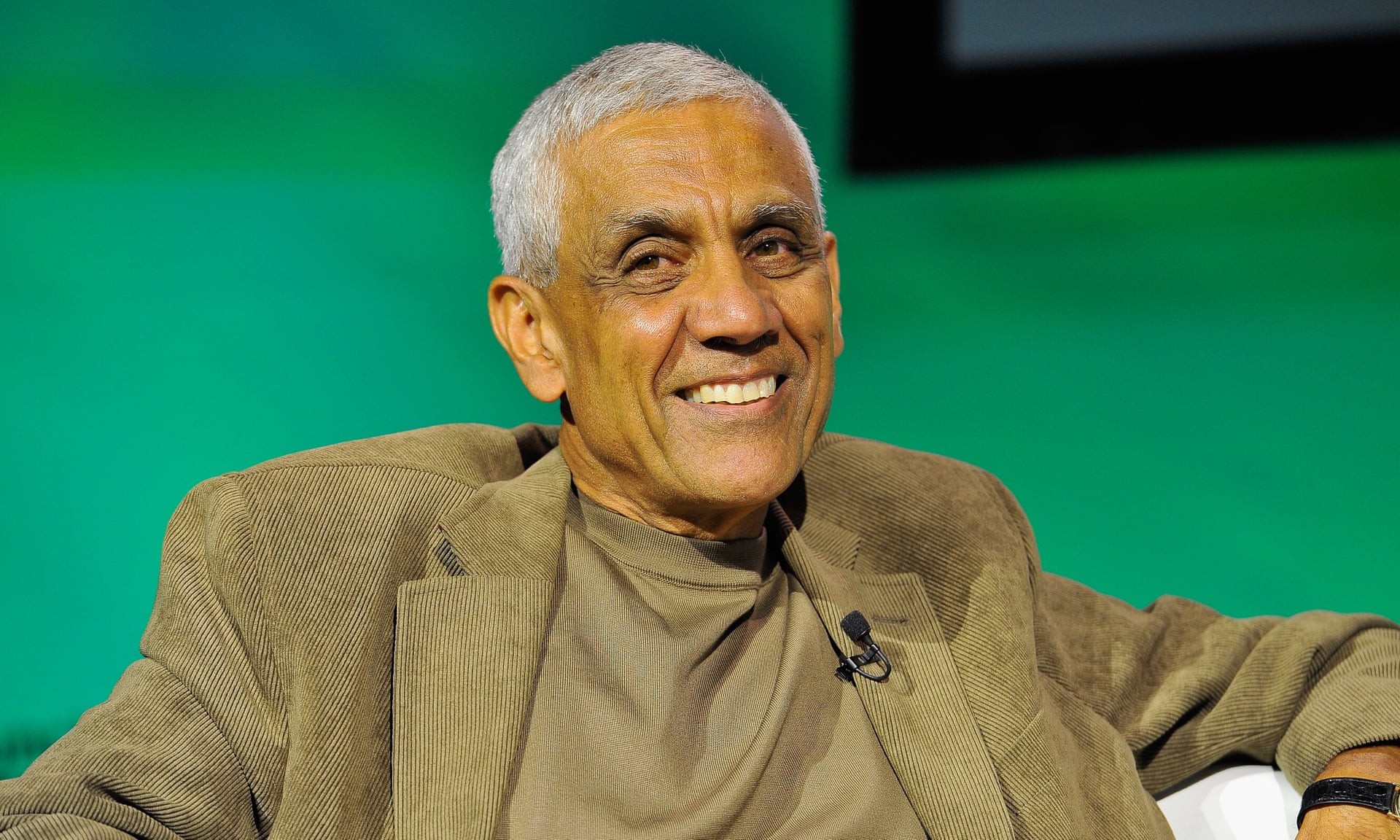Investor Vinod Khosla has battled regulators for years over Martin’s Beach, which can only be reached by road on his property

A ruling against Vinod Khosla over Martin’s Beach, above, ‘will throw private property rights in California into disarray’, say Khosla’s lawyers.
A Silicon Valley billionaire who was ordered by California courts to restore public access to a popular surfing beach is seeking to take his case to the US supreme court.
The case could entirely upend public access to beaches in a state with more than 1,000 miles of shoreline.
Vinod Khosla, the influential technology investor and co-founder of Sun Microsystems, has been battling California regulators and environmental advocates for years over access to Martin’s Beach, a picturesque cove about 30 miles south of San Francisco that can only be reached by a private road across Khosla’s property.
Khosla has consistently lost his legal fight, thanks to California state law that regulates access to the coastline – and prioritizes public access to beaches. In August 2017, a California appeals court ordered him to restore access by unlocking the gate to the road, an order with which he has only intermittently complied.
In a petition to the supreme court filed Thursday, Khosla’s attorneys argued that the state law regulating California’s coastline is “Orwellian”, and that the state court’s interpretation of the law in Khosla’s case “crosses a constitutional line”.
The ruling against Khosla “will throw private property rights in California into disarray”, the petition states. “After all, petitioner is hardly the only private property owner along the vast California coast, or the only one who would prefer to exclude the public from its private property.”
Mark Massara, an attorney who has represented the Surfrider Foundation in litigation seeking to keep Martin’s Beach open, called the appeal “a Hail Mary pass for a financial windfall” based on “preposterous” legal arguments.
Nevertheless, he warned that if Khosla were to win, there could be a “financial free for all”.
“The only way they can find for Vinod is to throw out the entire California coastal program,” Massara said. “It’s hard to fathom what would happen to California’s beaches and all beach access in the United States.”
Vinod Khosla. Photograph: Steve Jennings/Getty Images for TechCrunch
Access to Martin’s Beach has been disputed since soon after Khosla purchased 53 acres of land adjacent to the shore. The previous owners had maintained public access to the beach for nearly a century, charging visitors for parking and offering limited amenities.
Khosla began blocking access by locking the gate to the private road in 2010, touching off the protracted legal battle. The California coastal commission, a quasi-judicial body that must approve any new development on the coastline, has argued that landowners seeking to change the public’s degree of access to a beach must seek a permit. Khosla has rejected this argument and refused to apply for a permit to close the road.
“It’s the equivalent of saying that you know the IRS is not going to treat you fairly so you’re not going to file a tax return,” said Massara. “He won’t spend $200 on a permit application, but he’ll pay $10m to go to the US supreme court.”
Neither Khosla nor his attorney responded to a request for comment. Khosla, whose net worth is estimated at $2.4bn, attributed the decision to close the gate to his property manager when he was forced to testify on the matter in 2014. At the time, he also claimed ignorance of the lawsuits filed on his behalf, stating: “I probably get 500 to 1,000 pages of documents like this a week. I cannot review them all. I’m not trying to be unreasonable, just telling you what my life is like.”
The difference between the life of a billionaire and that of an average citizen is certainly on display in the Martin’s Beach case. State law allows the coastal commission to issue fines of up to $11,250 per day for blocking public access to a beach. In September, the commission warned Khosla that his violations of the California Coastal Act could rack up fines of more than $20m.
“In this case, it’s fair to say that the civil fines and penalty structure is not sufficiently motivating for a guy of [Khosla’s] means,” said Massara. “Eleven thousand dollars a day – I tend to think he just doesn’t care.”
Contact us to share your thoughts about America’s public lands
Since you’re here …
… we have a small favour to ask. More people are reading the Guardian than ever but advertising revenues across the media are falling fast. And unlike many news organisations, we haven’t put up a paywall – we want to keep our journalism as open as we can. So you can see why we need to ask for your help. The Guardian’s independent, investigative journalism takes a lot of time, money and hard work to produce. But we do it because we believe our perspective matters – because it might well be your perspective, too.
I appreciate there not being a paywall: it is more democratic for the media to be available for all and not a commodity to be purchased by a few. I’m happy to make a contribution so others with less means still have access to information.


No comments:
Post a Comment